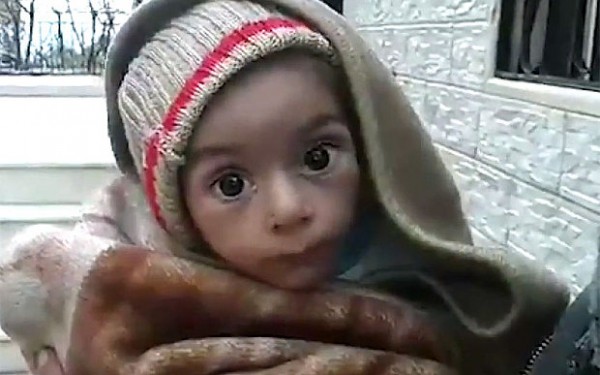
By Douglas HERBERT
Donors at an international conference for Syria have pledged around $10 billion to alleviate the plight of refugees. But raising cash may be a lot easier than delivering aid – especially when hunger is used as a weapon of war.
The five-year civil war raging in Syria, which has metastasized into the world’s worst humanitarian disaster, is spawning human tragedies faster than the world’s ability to keep pace.
“After almost five years of fighting, it’s pretty incredible that as we come here in London in 2016 the situation on the ground is actually worse,” US Secretary of State John Kerry told delegates from some 70 countries.
UN Secretary General Ban Ki-Moon was blunter.
“The situation in Syria is as close to hell as we are likely to find on this earth,” he said. His organisation, he noted, has been unable to get aid to hundreds of thousands of Syrians in communities under siege.
This week’s donors’ conference in London – like similar Syria-related appeals in the past – aims to salve the wounds of a brutal conflict whose toll of killing, uprooting, bombardment, siege, starvation and terror has defied resolution.
Resigning themselves to the prospect of a protracted war, the donors are focusing on helping to provide schooling and job opportunities to some 4.5 million Syrian refugees in the four neighboring countries that have borne the brunt of the exodus: Turkey, Jordan, Lebanon and Iraq.
To this end, the Nobel peace prize laureate, Malala Yousafzai, challenged donors to provide education for the 700,000 Syrian children who have seen their schooling cut short by war.
An incentive to stay
For big donors such as Germany, Britain, Norway and the US, the strategy is as much about altruism as self-interest.
By giving refugees an incentive to stay where they are, European donors hope to dissuade them from making the perilous journey to Europe, where a less than warm welcome may await them.
Europe has already pledged some three billion euros to help Turkey cope with its 2.5 million-strong refugee population – and growing; the conference hopes to earmark more than a billion more for Syria’s neighbors.
But it’s the desperate plight of the so-called “internally displaced” that presents the greatest dilemma for donors and aid workers.
The world has seen flashes of the epic suffering in Syria, though much of the horror has gone unreported.
This year’s donors’ conference couldn’t have taken place at a more inauspicious moment, within hours the peace talks between the Syrian regime and the opposition were suspended and as fighting intensified on the ground.
Trapped under siege
Up to 10,000 Syrian civilians were reported to be massing along the Turkish border after being driven from the outskirts of Aleppo by a pro-government ground offensive backed by Russian airstrikes.
Their plight mirrors that of half a million or more Syrian civilians who have been trapped in towns and villages under siege.
In December, the UN estimated that 97% of Syria’s remaining civilians were being denied aid by the government as a way of maintaining control over local populations – and literally starving them into submission.
President Bashar al-Assad has vehemently denied any such policy, blaming the “terrorist” rebel opposition instead.
According to the UN, 4.5 million Syrians live in “hard to reach” areas, of whom more than two-thirds have been cut off from any international aid for three months.
A war crime
Typically, Assad’s government has dictated the terms of access to civilians in need, granting the necessary visas to UN officials.
Allowing aid convoys to reach vulnerable areas has been portrayed by the regime as a goodwill gesture.
In fact, ensuring safe passage for emergency supplies to those in need is an obligation under international law. Withholding aid is considered a war crime.
Sadly, there are few signs that Assad – or his Russian backers – is likely to have a humanitarian change of heart in the near future. The evidence to date is that they let aid through when it suits their military objectives.
So long as humanitarian aid remains politicised, subject to the whims of an uncompromising autocrat, donor conferences will keep feeding on themselves.
As the EU’s foreign policy chief, Federica Mogherini, put it: “If you don’t have access and a political horizon, we will meet here again next year with more money and no solution.”

Leave a Reply
You must be logged in to post a comment.